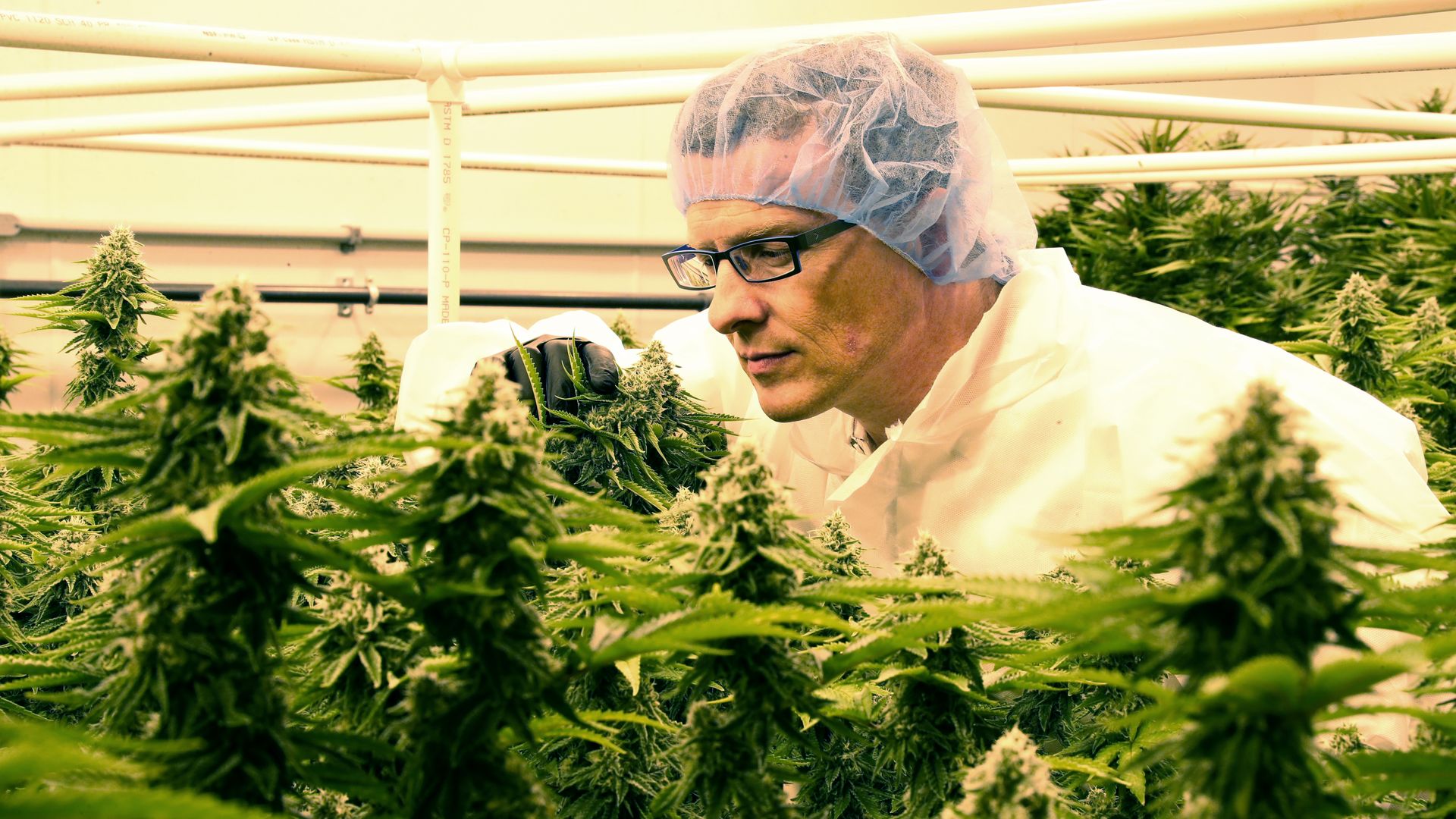Dec 20, 2018 - Energy & Climate
Expert VoicesMassachusetts tackles carbon emissions from pot after legalization
Add Axios as your preferred source to
see more of our stories on Google.

Mike Dundas, CEO of Sira Naturals, looks over plants at the company's facility in Milford, Massachusetts, on June 19, 2018. Photo: Matthew J. Lee/The Boston Globe via Getty Images
